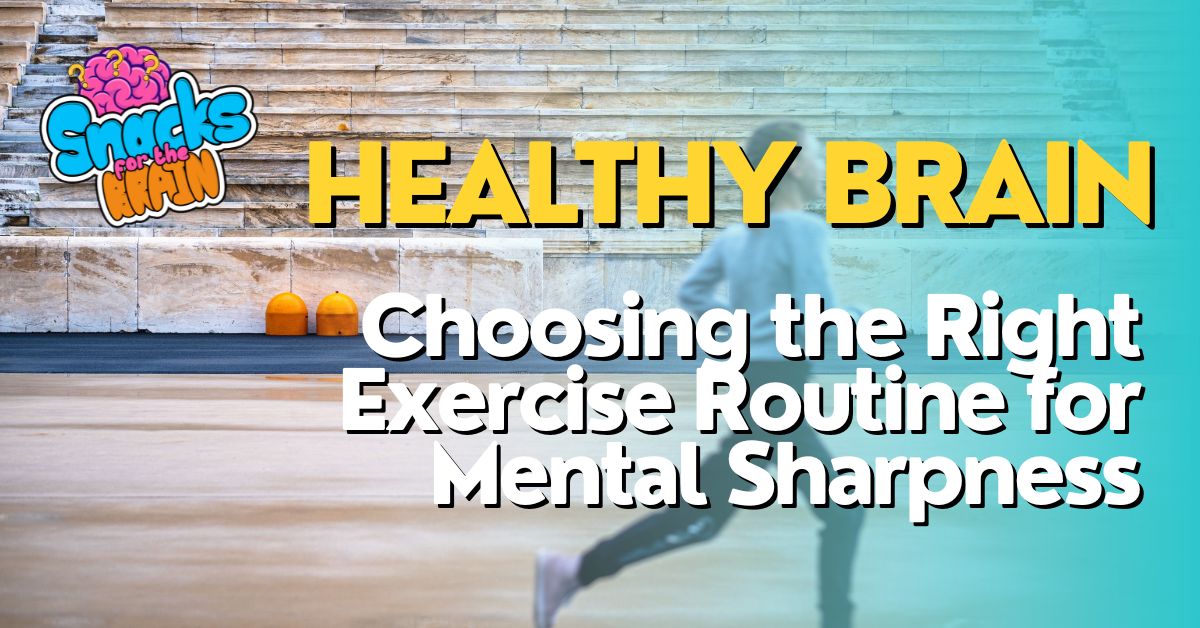Cognitive training is a crucial component of neurological rehabilitation, as it focuses on improving cognitive functioning in individuals with neurological disorders. Neurological rehabilitation aims to restore or enhance the functioning of the nervous system, which includes the brain, spinal cord, and peripheral nerves. Cognitive training specifically targets cognitive processes such as attention, memory, problem-solving, and executive functions.
The importance of cognitive training in neurological rehabilitation cannot be overstated. Cognitive deficits are common in individuals with neurological disorders, and they can significantly impact daily functioning and quality of life. By targeting these deficits through cognitive training, individuals can improve their cognitive functioning and regain independence in various aspects of their lives.
Key Takeaways
- Cognitive training is a key component of neurological rehabilitation.
- It involves exercises and activities that target cognitive functions such as memory, attention, and problem-solving.
- Cognitive training can improve overall neurological functioning and quality of life for individuals with neurological conditions.
- Different types of cognitive training, such as computer-based programs and group therapy, can be used in rehabilitation.
- While there are challenges to implementing cognitive training, it can be a valuable complementary therapy when integrated with other rehabilitation approaches.
Understanding Neurological Rehabilitation and Cognitive Training
Neurological rehabilitation refers to a comprehensive approach to treating individuals with neurological disorders. It involves a multidisciplinary team of healthcare professionals who work together to address the physical, cognitive, and emotional needs of the patient. The goal of neurological rehabilitation is to help individuals regain or improve their functional abilities and enhance their overall quality of life.
Cognitive training is a specific component of neurological rehabilitation that focuses on improving cognitive functioning. It involves structured exercises and activities that target specific cognitive processes such as attention, memory, problem-solving, and executive functions. These exercises are designed to challenge and stimulate the brain, promoting neuroplasticity and facilitating the development of new neural connections.
The Importance of Cognitive Training in Neurological Rehabilitation
Cognitive training plays a crucial role in neurological rehabilitation for several reasons. Firstly, it helps individuals improve their cognitive functioning by targeting specific deficits. By engaging in targeted cognitive exercises, individuals can strengthen their attention, memory, problem-solving skills, and executive functions. This improvement in cognitive functioning can have a significant impact on daily activities such as work, social interactions, and self-care.
Secondly, cognitive training is essential for improving the overall quality of life for individuals with neurological disorders. Cognitive deficits can lead to difficulties in various aspects of life, including work, relationships, and leisure activities. By addressing these deficits through cognitive training, individuals can regain independence and participate more fully in their daily lives.
Lastly, cognitive training can also help reduce symptoms of neurological disorders. For example, individuals with Parkinson’s disease often experience cognitive impairments such as difficulties with attention and memory. By engaging in cognitive training exercises, these individuals can improve their cognitive functioning and potentially reduce the severity of their symptoms.
Types of Cognitive Training Used in Neurological Rehabilitation
There are various types of cognitive training used in neurological rehabilitation, depending on the specific deficits and needs of the individual. Some common types of cognitive training include:
1. Memory training: This type of training focuses on improving memory skills such as recall, recognition, and working memory. It may involve exercises such as memorizing lists of words or images, practicing mnemonic techniques, or using memory aids.
2. Attention training: Attention training aims to improve an individual’s ability to focus and sustain attention. It may involve exercises such as selective attention tasks, divided attention tasks, or attentional control exercises.
3. Problem-solving training: Problem-solving training targets an individual’s ability to analyze problems, generate solutions, and make decisions. It may involve exercises such as puzzles, riddles, or real-life problem-solving scenarios.
4. Executive function training: Executive functions refer to a set of cognitive processes that are responsible for planning, organizing, and executing complex tasks. Executive function training may involve exercises such as goal-setting activities, time management tasks, or decision-making exercises.
It is important to note that cognitive training programs should be individualized to meet the specific needs and goals of each individual. A one-size-fits-all approach may not be effective in addressing the unique cognitive deficits of each person.
Benefits of Cognitive Training in Neurological Rehabilitation
Cognitive training offers several benefits in the context of neurological rehabilitation. Firstly, it can lead to significant improvements in cognitive functioning. By engaging in targeted cognitive exercises, individuals can strengthen their attention, memory, problem-solving skills, and executive functions. These improvements can translate into better performance in daily activities and increased independence.
Secondly, cognitive training can have a positive impact on the overall quality of life for individuals with neurological disorders. By addressing cognitive deficits, individuals can regain independence and participate more fully in work, relationships, and leisure activities. This can lead to increased satisfaction and overall well-being.
Furthermore, cognitive training has been shown to reduce symptoms of neurological disorders. For example, individuals with traumatic brain injury often experience difficulties with attention and memory. By engaging in cognitive training exercises, these individuals can improve their cognitive functioning and potentially reduce the severity of their symptoms.
Challenges of Cognitive Training in Neurological Rehabilitation

While cognitive training is a valuable tool in neurological rehabilitation, it is not without its challenges. One of the main challenges is measuring cognitive functioning accurately. Cognitive processes are complex and multifaceted, making it difficult to assess them objectively. This challenge can make it challenging to determine the effectiveness of cognitive training programs and track progress over time.
Another challenge is creating individualized cognitive training programs. Each individual has unique cognitive deficits and goals, which require tailored interventions. Designing personalized programs that address specific deficits can be time-consuming and resource-intensive.
Maintaining motivation is also a challenge in cognitive training. Engaging in repetitive cognitive exercises can be tedious and may lead to decreased motivation over time. It is important to find ways to keep individuals engaged and motivated throughout the training process.
Cognitive Training as a Complementary Therapy in Neurological Rehabilitation
Cognitive training is often used as a complementary therapy alongside other rehabilitation approaches in neurological rehabilitation. It is not meant to replace other interventions but rather enhance their effectiveness. By combining cognitive training with other rehabilitation approaches, individuals can benefit from a comprehensive and holistic treatment plan.
For example, physical therapy and occupational therapy can be combined with cognitive training to address both physical and cognitive deficits. This integrated approach allows individuals to work on multiple aspects of their recovery simultaneously, leading to better overall outcomes.
Integrating Cognitive Training with Other Rehabilitation Approaches
Integrating cognitive training with other rehabilitation approaches is crucial for maximizing the benefits of neurological rehabilitation. Some examples of rehabilitation approaches that can be combined with cognitive training include:
1. Physical therapy: Physical therapy focuses on improving physical functioning and mobility. By combining physical therapy with cognitive training, individuals can work on both their physical and cognitive deficits simultaneously.
2. Occupational therapy: Occupational therapy aims to help individuals regain independence in daily activities such as self-care, work, and leisure. By integrating cognitive training with occupational therapy, individuals can address both their cognitive deficits and functional goals.
3. Speech therapy: Speech therapy is often used to address communication difficulties in individuals with neurological disorders. By combining speech therapy with cognitive training, individuals can work on both their communication skills and cognitive functioning.
It is important to note that each individual’s rehabilitation program should be tailored to their specific needs and goals. An individualized approach ensures that the interventions are targeted and effective in addressing the unique deficits of each person.
Future Directions in Cognitive Training for Neurological Rehabilitation
The field of cognitive training for neurological rehabilitation is constantly evolving, with advancements in technology playing a significant role. Virtual reality (VR) and augmented reality (AR) are increasingly being used in cognitive training programs to create immersive and engaging experiences. These technologies have the potential to enhance motivation and improve outcomes in neurological rehabilitation.
Furthermore, research in cognitive training is essential for advancing the field and improving the effectiveness of interventions. By conducting rigorous studies, researchers can identify the most effective cognitive training techniques, determine optimal dosage and intensity, and develop evidence-based guidelines for practice.
The Role of Cognitive Training in Improving Neurological Functioning
In conclusion, cognitive training plays a crucial role in neurological rehabilitation by targeting cognitive deficits and improving overall functioning. It is an essential component of a comprehensive treatment plan that aims to restore or enhance the functioning of individuals with neurological disorders.
By engaging in targeted cognitive exercises, individuals can improve their attention, memory, problem-solving skills, and executive functions. These improvements can lead to better performance in daily activities, increased independence, and enhanced quality of life.
While cognitive training is not without its challenges, it offers significant benefits when integrated with other rehabilitation approaches. By combining cognitive training with physical therapy, occupational therapy, and speech therapy, individuals can address both their physical and cognitive deficits simultaneously.
The future of cognitive training in neurological rehabilitation looks promising, with advancements in technology and ongoing research contributing to its continued development. With continued advancements and research, cognitive training has the potential to further improve neurological functioning and enhance the lives of individuals with neurological disorders.
If you’re interested in unlocking your brain’s full potential and increasing your intelligence and memory, you might find this article on «Tips to Increase Intelligence and Memory» from Intelligence Snacks helpful. It provides valuable insights and practical tips to enhance cognitive abilities and improve memory retention. Check it out for some useful strategies that can complement the role of cognitive training in neurological rehabilitation.
FAQs
What is cognitive training?
Cognitive training is a type of therapy that aims to improve cognitive abilities such as attention, memory, and problem-solving skills.
What is neurological rehabilitation?
Neurological rehabilitation is a type of therapy that aims to improve the function of the nervous system after an injury or illness.
What is the role of cognitive training in neurological rehabilitation?
Cognitive training can be used as a part of neurological rehabilitation to improve cognitive abilities that may have been affected by an injury or illness.
What are some examples of cognitive training exercises?
Examples of cognitive training exercises include memory games, attention exercises, problem-solving tasks, and language exercises.
Who can benefit from cognitive training in neurological rehabilitation?
Individuals who have experienced a neurological injury or illness, such as a stroke or traumatic brain injury, may benefit from cognitive training as a part of their rehabilitation.
Is cognitive training effective in neurological rehabilitation?
Research has shown that cognitive training can be effective in improving cognitive abilities in individuals undergoing neurological rehabilitation.
How long does cognitive training last?
The length of cognitive training can vary depending on the individual’s needs and progress. It may last for several weeks or months.
Is cognitive training covered by insurance?
Cognitive training may be covered by insurance if it is deemed medically necessary as a part of neurological rehabilitation. It is best to check with your insurance provider for specific coverage details.






